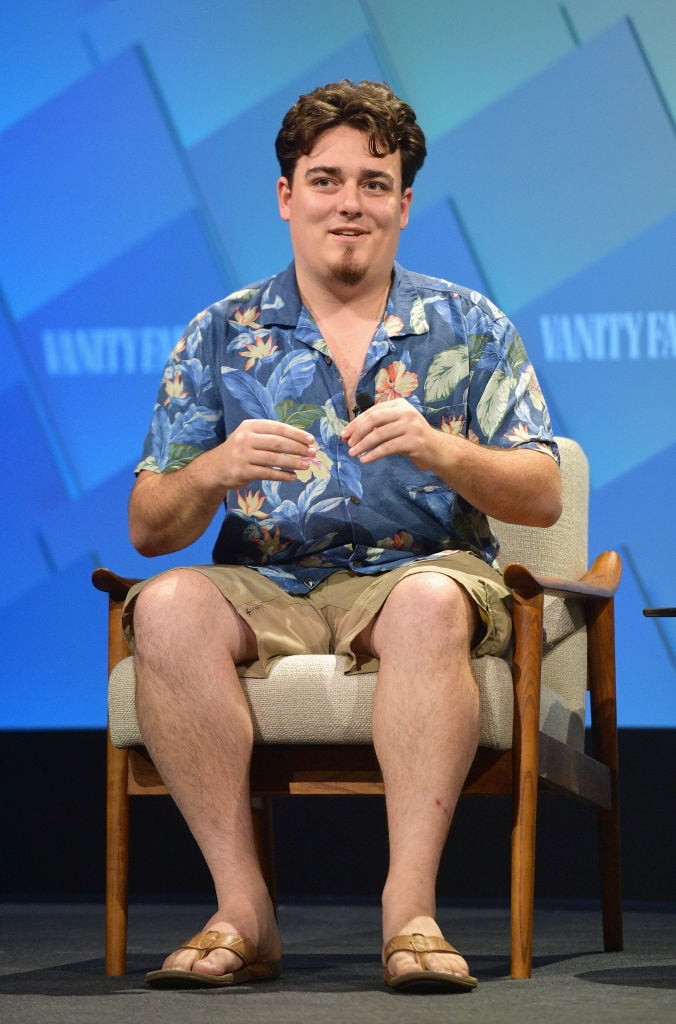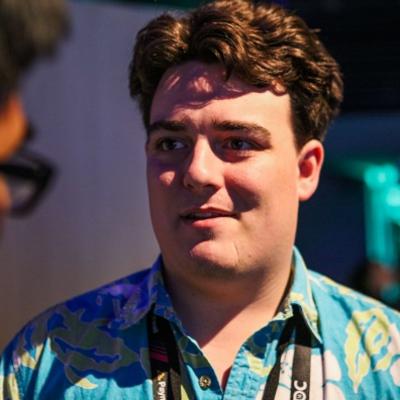Palmer Luckey at a Glance
Palmer Luckey: From Oculus Rift Inventor to Tech Entrepreneur’s Net Worth
Early Life and the Birth of a Visionary
Palmer Luckey, a name now synonymous with virtual reality innovation, was born on September 19, 1992, in Long Beach, California. His upbringing, marked by homeschooling and a supportive family, nurtured his innate curiosity and passion for technology. From a young age, Luckey displayed an exceptional aptitude for electronics and engineering. His early exposure to computer-generated gaming worlds sparked a fascination that would eventually lead him to revolutionize the entertainment industry. This early immersion in technology, coupled with his self-taught skills in building PC gaming systems, laid the groundwork for his obsession with virtual reality (VR) technology.
Luckey’s intellectual curiosity propelled him to seek advanced learning opportunities early. At the tender age of 14, he was already taking community college courses at Golden West College and Long Beach City College, demonstrating a remarkable drive and ambition. By the time he was 16, he had already begun building VR headsets, a testament to his proactive approach to his passions. To fund his projects, he employed an entrepreneurial spirit, fixing and reselling damaged iPhones and taking on odd jobs, showcasing his resourcefulness and determination.
Oculus VR: A Revolutionary Idea
The culmination of Luckey’s early endeavors was the creation of Oculus VR. By 2010, he had already constructed his first working VR headset prototype in his parents’ garage, a testament to his dedication and ingenuity. This initial prototype was just the beginning. Luckey continuously refined his design, leading to the development of the 6th generation model, which he aptly named the Rift. The Rift represented a significant leap forward in VR technology, offering a more immersive and engaging experience for users.
Luckey’s vision went beyond mere invention; he aspired to bring his VR headset to the masses. He launched a Kickstarter campaign in April 2012 to fund the project. The campaign quickly gained momentum, attracting the attention of key figures in the tech and gaming industries. John Carmack, a renowned game developer, requested a Rift prototype to demonstrate gameplay on the device. Additionally, Gabe Newell, the managing director of the video game developer Valve, offered his endorsement. These endorsements lent credibility to Luckey’s project and helped amplify its reach. The Kickstarter campaign was a resounding success, raising nearly $2.5 million, far exceeding its original goal.
To further capitalize on the momentum and manage the growing enterprise, Luckey expanded Oculus VR, bringing on Brendan Iribe as CEO, along with a team of other skilled employees. This strategic move was instrumental in transforming Oculus VR from a startup into a prominent player in the tech world.
The Facebook Acquisition and Its Aftermath
Oculus VR’s innovative technology and rapid growth caught the eye of Facebook, leading to a landmark acquisition in March 2014. Facebook acquired Oculus VR for a staggering $2 billion, a move that not only solidified Luckey’s financial success but also validated his vision for the future of virtual reality. That same year, Luckey’s contributions to technological advancement were recognized when he received the Smithsonian magazine’s American Ingenuity Award in the youth category, an honor that underscored his impact on the industry.
However, the acquisition by Facebook was not without its complications. Shortly after the deal, Oculus VR and Luckey were entangled in a lawsuit initiated by ZeniMax Media. ZeniMax claimed that Oculus had stolen its trade secrets and copyrighted code. While Luckey was initially found liable, an appeal led to the dismissal of the damages owed by him.
In 2016, Luckey’s political affiliations began to create internal conflict within Facebook. His donation of $10,000 to an anti-Hillary Clinton group sparked controversy and made him unpopular within the company. This situation ultimately led to his departure from Facebook in March 2017, although the circumstances surrounding his exit remain a subject of debate. While Facebook executives denied his departure was related to his political views, reports indicated that he was pressured to support candidates other than Trump. Despite the circumstances, Luckey successfully negotiated a payout of approximately $100 million from Facebook, representing stock awards he would have earned.

(Photo by Matt Winkelmeyer/Getty Images)
Anduril Industries: Defense Tech and Future Endeavors
Undeterred by the challenges he faced, Luckey embarked on a new venture in June 2017, co-founding Anduril Industries. This defense technology company, with co-founders Matt Grimm, Trae Stephens, Brian Schimpf, and Joe Chen, quickly gained traction in the industry. Anduril focuses on developing advanced surveillance and security systems. By March 2018, Anduril was already involved in a pilot program for the U.S. Government, utilizing its technology to detect illegal immigrants entering the U.S. via the Mexican border. Within the first 12 days of the program’s operation, it led to the apprehension of 55 individuals attempting to cross the border.
Anduril’s success continued to grow, and in September 2020, Luckey announced that the company had secured a contract with the U.S. Air Force, becoming one of the vendors for the Advanced Battle Management Systems project. This further solidified Anduril’s position as a leader in defense technology, and demonstrates Luckey’s versatility and continued drive for innovation.
Personal Life and Political Affiliations
Beyond his professional accomplishments, Luckey has cultivated a public image as a pioneer in the field of virtual reality. Despite his financial success, he maintained a relatively casual demeanor, often residing in a house with friends, which allowed him to regularly engage in multiplayer video games. Some believe that a character in the popular HBO show “Silicon Valley” was inspired by Luckey’s personality and achievements.
Luckey is in a relationship with Nicole Edelmann, who also shares an interest in video games and cosplay. The couple met around 2014, reflecting a shared passion for virtual worlds and the broader digital landscape.
Since his donation to the Trump campaign in 2016, Luckey has become an outspoken supporter of the Republican party, despite previously identifying as a libertarian. He hosted a fundraiser for Trump at his home in Newport Beach in October 2020, which was attended by Trump himself. Luckey has also made contributions to various Republican political candidates, including Ted Cruz, as well as conservative-affiliated organizations such as the National Republican Congressional Committee and the Great American Committee.
Palmer Luckey’s Net Worth: A Summary
Palmer Luckey’s net worth, estimated at $400 million, reflects his significant achievements as a businessman and entrepreneur. His journey from a young electronics enthusiast to the founder of Oculus VR, a company he sold to Facebook for $2 billion, exemplifies his visionary leadership. Further earnings from his time at Facebook and successful venture with Anduril Industries have contributed to his impressive net worth. Despite facing challenges, including legal battles and internal conflicts, Luckey has consistently demonstrated resilience and a commitment to innovation, solidifying his place as a prominent figure in the tech world.

